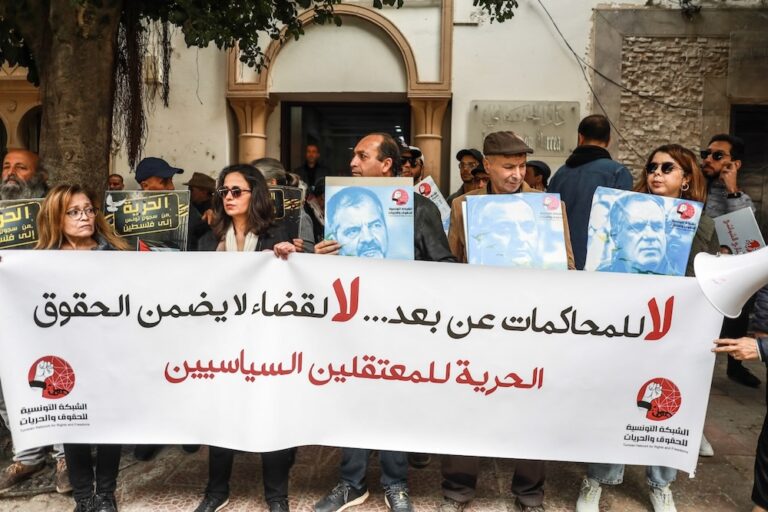The workshop, organised by ANHRI and the Tunisian Center for Freedom of the Press, included practical training on new media and social networks (Facebook, Twitter and Flickr) and techniques of live broadcasts using mobile devices in addition to using the Internet to design campaigns.
(ANHRI/IFEX) – 17 April 2012 – ANHRI and the Tunisian Center for Freedom of the Press concluded the second training session held in Sidi Bouzid in Tunisia from 13-14 April 2012 under the title “Internet serving freedom of expression”. The workshop is held within the framework of a series of workshops scheduled to be held in the upcoming period in cities outside the capital of Tunisia as part of the IFEX Tunisia Monitoring Group (IFEX-TMG) project.
The workshop, which was held over two days in Sidi Bouzid, included practical training on new media and social networks (Facebook, Twitter and Flickr) and techniques of live broadcasts using mobile devices in addition to using the Internet to design campaigns. The last part of the workshop was on international conventions and treaties and the most important laws that protect freedom of expression.
Fifteen trainees between the ages of 18 and 35 from Sidi Bouzid participated in the workshop that was facilitated by Wael Abbas, an Egyptian journalist and blogger, Mina Mamdouh, an Egyptian researcher at ANHRI, Ramsey George from Tactical Tech, a Jordanian expert in new media at Habr Organization, and AbdulKarim El Hizawi, the Director of the African Centre for Training Journalists and Communicators in Tunisia.
The timing of the workshop is aimed at serving the desires of a civil society that is working to preserve the gains of the revolution, in particular preserving the right to peaceful assembly and demonstration, as well as the rights to freedom of opinion and expression as fundamental human rights in the country.
Mr. Fahem Boukadous, the training program coordinator at the Tunisian Centre for Freedom of the Press said: “As new media effectively contributed to the overthrow of Ben Ali’s regime by challenging all forms of censorship and obfuscation, the journalists, bloggers and activists of Tunisian civil society need, now more than ever, to use the media to address the escalating campaigns targeting freedom of expression and the press in Tunisia. These developments make this training key in the construction of the Citizenship Act.”
Rawda Ahmed, the lawyer and Deputy Executive Director of ANHRI said: “We are happy to organize trainings and workshops for activists in Sidi Bouzid, Tunisia – the cradle of the revolution, which opened the way for communication between the Egyptian and Tunisian activists.”
Tunisian Center for Freedom of the Press



